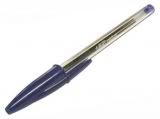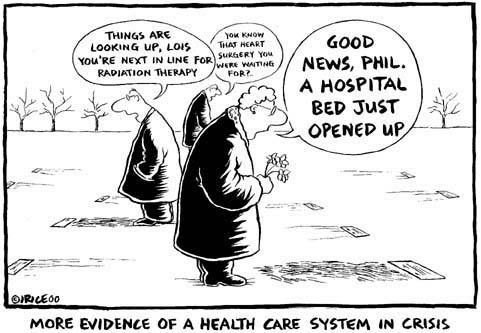
The strike is over. Nobody really wanted it in the first place. It was a lose/lose situation. Not like the good old days, when half a million or more workers in Detroit would carry placards for a few weeks while suits and ties hammered out a save-face way for a super-wealthy automaker to share some of the wealth.
Everybody in the union had to know that a strike would help no one. They just couldn't let go of a sacred tradition. There are some sad elements to this strike. It shows the changing face of history. The strike itself is outdated and obsolete, and hails back to how it was two generations ago:
Everybody in the union had to know that a strike would help no one. They just couldn't let go of a sacred tradition. There are some sad elements to this strike. It shows the changing face of history. The strike itself is outdated and obsolete, and hails back to how it was two generations ago:
- First, these things worked when America was a nation of manufacturers. We simply outpriced ourselves. Our labor is so expensive now that we can't fix anything, and have to subcontract someone else to actually make things. The force of organized labor was that Americans were needed to swing hammers, pull levers, and even push buttons. That doesn't happen anymore. If the strike had continued for any time at all, it would have done a good thing for GM: allowed them to dispose of the nine month backlog of manufactured vehicles that are crowding American car lots at the moment. It would have also done the inevitable bad thing: given a certain market share to Toyota, Honda, and Mazda, who already have a chokehold on American auto buyers, not because these car makers are evil, but because they make good cars that last for hundreds of thousands of miles. GM would have won for a short term, and foreign auto makers would have won in the long term. The workers wouldn't have won at all.
- Second, these things worked when America had affordable health care. The "big three" automakers have all backed themselves into a hole: the high cost of health care. From the days of Henry Ford, American auto makers have seen to the health and welfare of their employees. The biggest economic problem for Ford and GM has actually been health care recently. Since medicaid and medicare pumped the prices up to impossibly high levels, even multi-billion dollar corporations can no longer afford to cover their valuable employees as they did in the past. The employees of GM wanted the health care plans of the 60's, and even if GM had wanted to do it, they couldn't have afforded it. That's why it was so easy for GM to part with 50 billion dollars to end the negotiations. While that will flatten any profits for the next few quarters, in the long run, it's a bargain.
Now the ball is in the court of the UAW. What will they do with 50 billion dollars to take care of the employee health plan? Historically, organized labor has fought tooth and nail to take control of the money boxes, usually in the form of pension plans. Ten years ago, that is how UPS got the Teamsters off their backs: they gave the pension fund away to the union. I don't know what the Teamsters have done with it, and I'm afraid to say anything too bad (I'm thinking about Jimmy Hoffa), but a pension fund is a walk in the park compared to managing health care.
I try to envision what the next decade of health care for GM workers will embody. I can already envision what is going on in the CEO's office of GM. Relief. The medical costs were killing the profits. I'll admit I don't know enough about these things, but it appears that GM has gotten rid of a problem child. I do not know if they will still be responsible for health costs or not. I suppose that there will need to be payments to the union on the part of employees; I'm sure that GM will take up a portion of that, though I'm not sure how much.
It's a big opportunity for the UAW, though. I'm imagining a person of true vision and creativity, restructuring the health care plan, and making it work for the tens of thousands of employees. Maybe they could even talk to Hilary Clinton. What better opportunity than this microcosm would she have to give her plan a dry run? If the UAW could somehow develop a managed healthcare plan that precluded policy holder abuse as well as provider overages, they could set the standard for future health care in America.
I know one thing. The UAW will not increase union dues and take a portion of every employee's check to guarantee health coverage, yet many of those union members are going to vote for a president next year that would do just that: take more of their money and then offer them "free" health care.
Many people have said that the day of labor unions is over; that it is an institution that served its purpose, but has now outlived it. Union membership, as a percentage of American population, is at an all-time low. But like the rest of American culture, what it really needs is a change of paradigm (I cringe as I use that worn-out expression, but it fits here). We're all having to make changes. We live in an age of data, information, high-speed interaction, and instantaneous communication. Nobody uses typewriters or adding machines, and traditional communication is on the way out.
If unions could re-tool; if they could leave the first half of the twentieth century and join the 21st, they might make a difference that would make them relevant again. The United Auto Workers has just been offered that opportunity, and given 50 billion dollars to work with. Most countries would be envious of having that much money to devote to health care. Now, what will they do?
I ask this directly to anyone in the United Auto Workers (you see how many readers I have...) What will you do with this? You can become heroes for a true reformation in the way we handle health care; you can call on patients, hospitals, doctors, and others in the health care chain to show true responsibility. Or you can do what unions often do. Pocket the money and settle for business as usual. It's your choice.
I try to envision what the next decade of health care for GM workers will embody. I can already envision what is going on in the CEO's office of GM. Relief. The medical costs were killing the profits. I'll admit I don't know enough about these things, but it appears that GM has gotten rid of a problem child. I do not know if they will still be responsible for health costs or not. I suppose that there will need to be payments to the union on the part of employees; I'm sure that GM will take up a portion of that, though I'm not sure how much.
It's a big opportunity for the UAW, though. I'm imagining a person of true vision and creativity, restructuring the health care plan, and making it work for the tens of thousands of employees. Maybe they could even talk to Hilary Clinton. What better opportunity than this microcosm would she have to give her plan a dry run? If the UAW could somehow develop a managed healthcare plan that precluded policy holder abuse as well as provider overages, they could set the standard for future health care in America.
I know one thing. The UAW will not increase union dues and take a portion of every employee's check to guarantee health coverage, yet many of those union members are going to vote for a president next year that would do just that: take more of their money and then offer them "free" health care.
Many people have said that the day of labor unions is over; that it is an institution that served its purpose, but has now outlived it. Union membership, as a percentage of American population, is at an all-time low. But like the rest of American culture, what it really needs is a change of paradigm (I cringe as I use that worn-out expression, but it fits here). We're all having to make changes. We live in an age of data, information, high-speed interaction, and instantaneous communication. Nobody uses typewriters or adding machines, and traditional communication is on the way out.
If unions could re-tool; if they could leave the first half of the twentieth century and join the 21st, they might make a difference that would make them relevant again. The United Auto Workers has just been offered that opportunity, and given 50 billion dollars to work with. Most countries would be envious of having that much money to devote to health care. Now, what will they do?
I ask this directly to anyone in the United Auto Workers (you see how many readers I have...) What will you do with this? You can become heroes for a true reformation in the way we handle health care; you can call on patients, hospitals, doctors, and others in the health care chain to show true responsibility. Or you can do what unions often do. Pocket the money and settle for business as usual. It's your choice.




